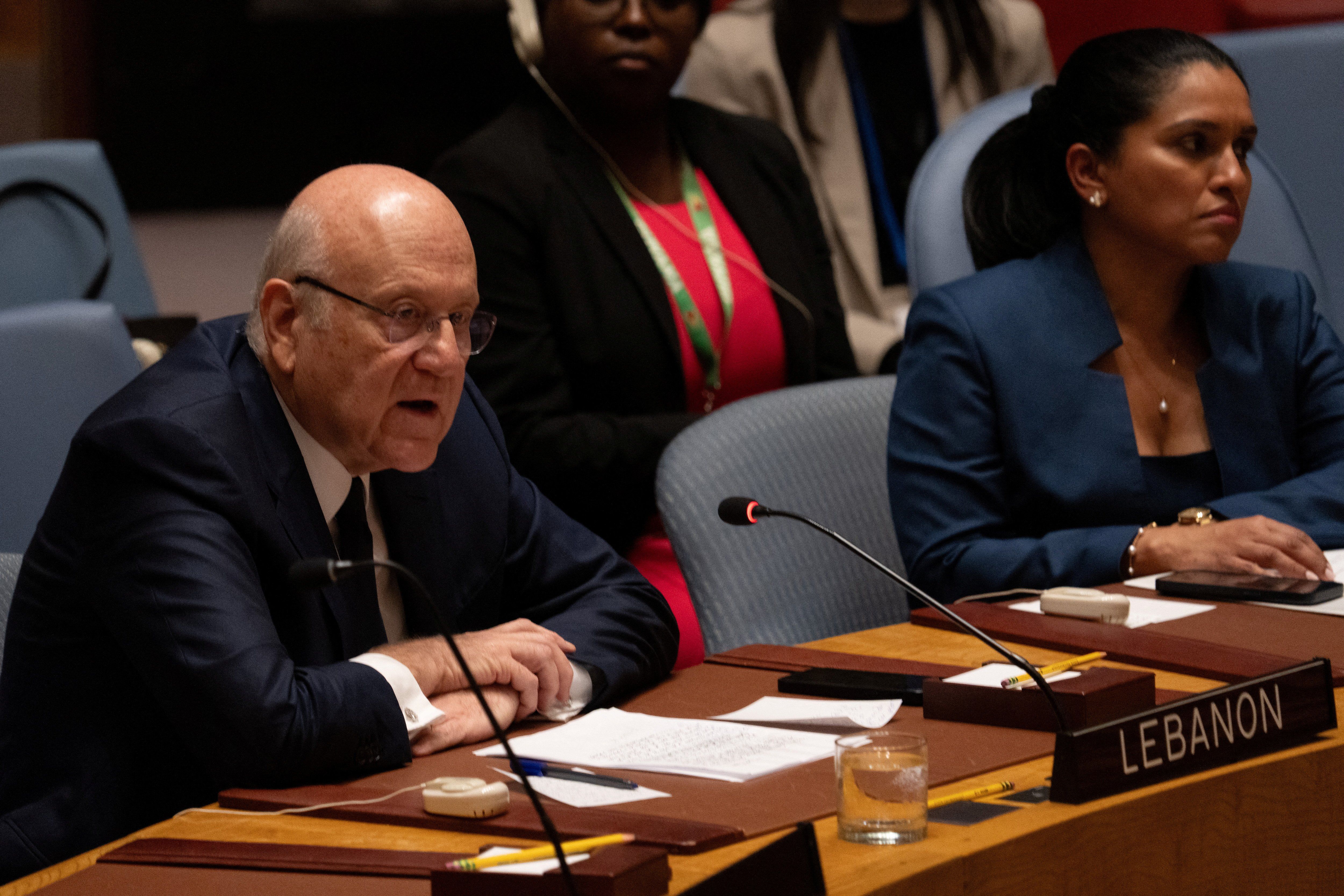Israel lays the groundwork for ground war, denies reports of imminent cease-fire
Lebanon's caretaker Prime Minister, Najib Mikati speaks at the United Nations Security Council meeting on the escalation in fighting in Lebanon between Israel and Hezbollah during the United Nations General Assembly at U.N. headquarters in New York, U.S., September 25, 2024.
UNITED NATIONS – Israel appeared to be inching closer to a ground invasion of Lebanon on Wednesday after the army called up reservists while top brass told troops the wave of recent Israeli airstrikes was meant to “clear the ground for your possible entry.”
In response to those attacks, which killed hundreds, Hezbollah on Tuesday fired a ballistic missile that reached as far as Tel Aviv, where air defenses shot it down.
Meanwhile, in UN Security Council on Wednesday, the US and France worked to broker a 21-day Israel-Hezbollah cease-fire. During the debate, the US was in lockstep with Israel’s belief that it has the right to defend itself against Hezbollah. Washington blamed the situation on Hezbollah’s “decision to break the peace” by firing rockets into Israel the day after the Oct. 7 attack. Israel echoed that defending itself was something “any country would do.”
Lebanon called for an “immediate cease-fire” because it “cannot afford to lose another generation to war” but said it would only agree if Israel withdrew from occupied territory and ended the war in Gaza.
Iran, Syria, and Egypt all warned that a ground invasion of Lebanon would spiral into a wider regional war. They blamed the US and UK for being “enablers” of Israel’s escalatory actions and said they were rendering the Security Council ineffective.
An Israeli invasion would mean a major escalation in its fighting with Hezbollah. The two sides have so far traded blows from the sky since Hamas’ Oct. 7 attack. Invading Lebanon would be a gamble – Iran-backed Hezbollah is much stronger than Hamas, and a wider war could draw in Iran or locally deployed US forces. Israel, meanwhile, has yet to meet its stated goals of freeing the remaining hostages in Gaza and destroying Hamas.
But Prime Minister Benjamin Netanyahu, still embarrassed by the security failures of Oct. 7, has pledged to secure the north, where tens of thousands of Israelis have been evacuated from their homes due to Hezbollah rocket fire. And despite efforts to broker a cease-fire – the PM said reports of an imminent deal were false – his office said early Thursday that Netanyahu had instructed Israel's military to keep fighting “with full force.”
Hezbollah too has threatened a wider war, but a full-blown conflict with Israel could entail immense pain for a Lebanon already reeling from years of economic crisis.
